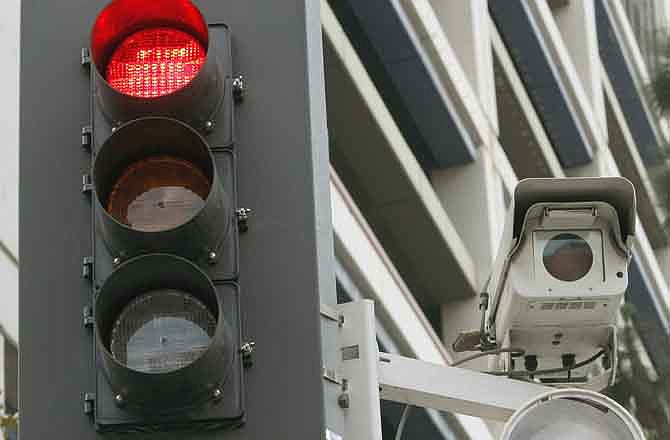A proposal that received initial approval Wednesday in the Missouri House would ban cities from using red-light cameras and end programs already in place.
Such programs previously were dealt a setback when the Missouri Supreme Court found legal and constitutional issues with camera ordinances used for stoplights in St. Louis and the suburb of St. Peters and for speed-limit enforcement in the suburb of Moline Acres.
But judges in that ruling gave what some considered guidance on how to lawfully and constitutionally use the cameras.
Republican Rep. Bryan Spencer, of Wentzville, told colleagues during debate on the House floor his bill would go farther and ensure none can be established. Places with programs already operating would have a year to cancel contracts.
During the House debate, he questioned whether the cameras improve public safety and argued they sometimes are used as a way to generate revenue. He and other supporters said it should be up to police officers to decide whether to hand out tickets, and those facing violations have a right to face their accusers.
Republican Rep. Keith Frederick, of Rolla, said his wife once received a ticket from a red-light camera after making a rolling right turn while picking up their sick son to take him to the emergency room.
"A real-live, living, feeling human officer would never have done that," he said.
St. Louis Democratic Rep. Peter Merideth said it should be up to cities and counties whether to implement traffic-enforcement cameras, and he said traffic cameras help cut down on bias in policing because he said there's no opportunity for discrimination.
"That is an improvement for law enforcement, and it actually frees up officers to go do the tougher work of protecting folks against more dangerous crimes in their area," he said.
This is not the first time lawmakers have tried to weigh in on red-light cameras. Spencer in 2015 tried to put red-light cameras to a public vote, but the measure didn't advance once it reached the Senate.
Spencer's current measure needs another vote of approval in the House before it can move to the Senate.

